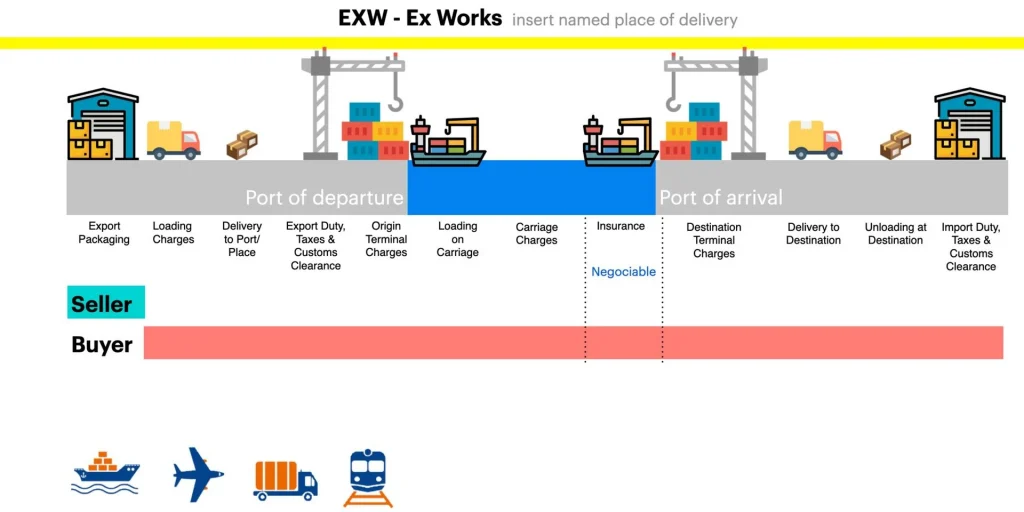EXW (Ex Works)
is one of the 11 Incoterms defined in the Incoterms 2020, published by the International Chamber of Commerce (ICC). It is the simplest and most basic of the Incoterms and is often used when the buyer is experienced and well-equipped to arrange for the transportation of the goods.
Under EXW, the seller is only responsible for making the goods available at their premises. The buyer is responsible for all transportation costs, import clearance formalities and risks associated with the goods from that point on. This includes arranging for and paying for transportation, loading the goods onto the transport vehicle, obtaining any necessary export or import licenses and permits, and paying any applicable duties or taxes.

Responsibilities and Obligations of Buyer and Seller
- Making the goods available at their premises
- Loading the goods onto the transport vehicle (if agreed upon)
- Obtaining any necessary export licenses or permits
- The buyer's responsibilities under EXW include:
- Arranging and paying for transportation of the goods
- Obtaining any necessary import licenses or permits
- Paying any applicable duties or taxes
- Bearing the risk of loss or damage to the goods once they are available at the seller's premises
Advantages of using EXW include:
- The buyer has complete control over the transportation arrangements
- The buyer can choose the mode of transportation and the carrier
- The buyer can arrange for the goods to be shipped directly to the final destination, avoiding the need for transshipment
Disadvantages of using EXW include:
- The buyer bears all the risks and costs associated with the transportation of the goods
- The buyer is also responsible for obtaining any necessary licenses or permits and paying any applicable duties or taxes
- The buyer may also need to arrange for unloading the goods from the transport vehicle at the final destination
Examples of when to use EXW include:
- When the buyer is experienced and well-equipped to handle the transportation arrangements
- When the buyer has established relationships with carriers and can obtain favorable transportation rates
- When the goods are bulky or heavy and require special handling or equipment to load or unload
- When the buyer is importing goods into a country with a well-established customs clearance process and minimal import restrictions
It’s important to note that while EXW may be the simplest and most basic of the Incoterms, it also shifts the most responsibilities and risks to the buyer. It’s important for the buyer to carefully consider their capabilities and resources before choosing to use EXW in a trade agreement, and to consult with legal and logistics experts to ensure compliance with laws and regulations.
